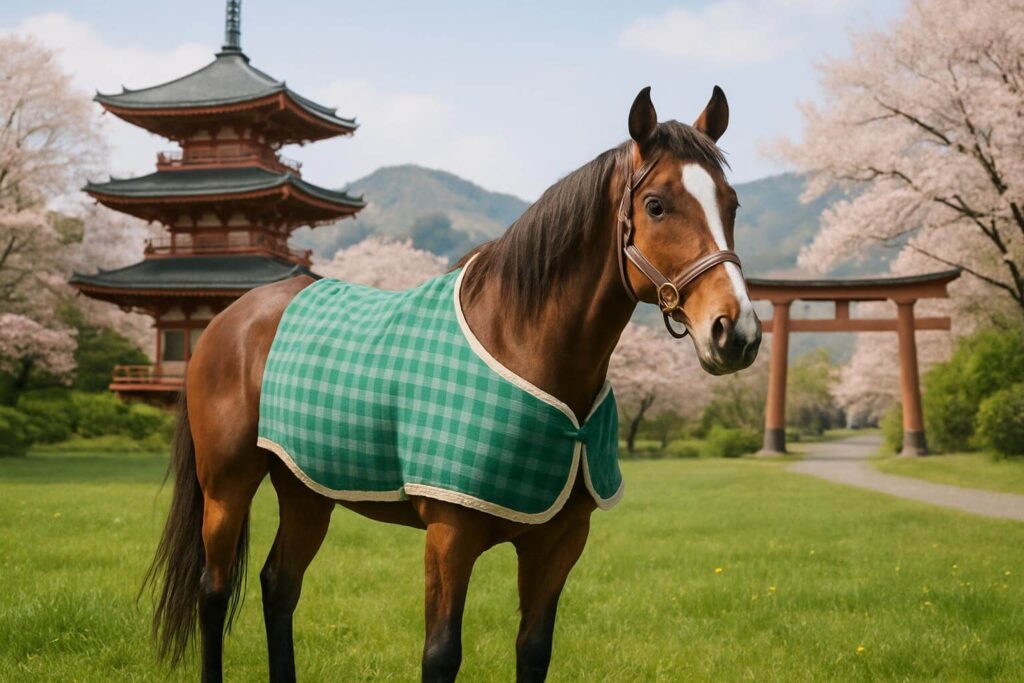
Grass Wonder began his journey far from the tracks of Japan. Born in the United States in 1995, he arrived in Japan as a young and promising colt. His chestnut coat shone under the sun. He had a strong frame, alert eyes, and a calm mind. Trainers quickly noticed something special.
As a two-year-old in 1997, he made a bold entrance. He won his debut and then three more races in a row. The final victory came in the prestigious Asahi Hai Futurity Stakes. It was the top race for juveniles, and Grass Wonder took it with style. At that moment, fans knew a star had arrived.
Grass Wonder: The Comeback King
Injury hit him just as his three-year-old season began. It sidelined him for months. Some doubted his return. But Grass Wonder wasn’t finished. He came back stronger and more determined.
His most unforgettable performance came in 1999. In the Takarazuka Kinen, he faced older, tougher horses. He stayed calm in the early part of the race. Then he unleashed a late run that stunned everyone. He flew past the leaders and took the win. That race showed his true fighting spirit.
Later that year, he raced in the Arima Kinen, one of Japan’s most beloved events. Fans vote for which horses take part. Grass Wonder didn’t disappoint. He timed his move perfectly and claimed victory again. The following year, he returned to defend the title. And he did just that. Back-to-back Arima Kinen wins sealed his legacy.
How Grass Wonder Captured Hearts
Grass Wonder didn’t just win races. He won hearts. His style was simple but thrilling. He stayed quiet in the early laps. Then, when others faded, he surged forward. His closing speed became his weapon. It was a joy to watch and a nightmare for rivals.
He also had grace. On and off the track, he stayed calm. No drama, no wild behavior. Just focus and strength. Fans admired that. They loved how he fought when it mattered most.
His name also added charm. “Grass Wonder” sounded poetic and powerful. It fit his nature—soft like grass, yet full of wonder and strength.
Many compared him to legends before him. But Grass Wonder stood in his own light. He raced during a competitive era. Yet he made his mark with style and heart.
The Legacy of Grass Wonder
Grass Wonder retired in 2000. He had six wins from fifteen starts. Though not a dominant sire, he still passed on spirit and stamina. Some of his offspring showed sparks of brilliance. But none quite matched the legend.
In time, his racing clips became part of history. Fans still revisit his famous runs. The Takarazuka and Arima wins remain classics. Commentators still recall the thrill of his finishes. His name appears in games, media, and stories about great horses.
What makes his legacy special isn’t just the numbers. It’s how he made people feel. He reminded fans that calmness could hide power. That setbacks didn’t mean the end. And that timing was everything.
Grass Wonder gave hope. He proved that with patience and strength, any race could be won. Even when odds seemed low, he found a way to rise. That’s why people still speak of him today.
Grass Wonder’s story isn’t just about trophies. It’s about resilience, grace, and the heart of a true champion. He wasn’t loud. He didn’t always dominate. But when it counted, he showed up. And he raced with wonder.





